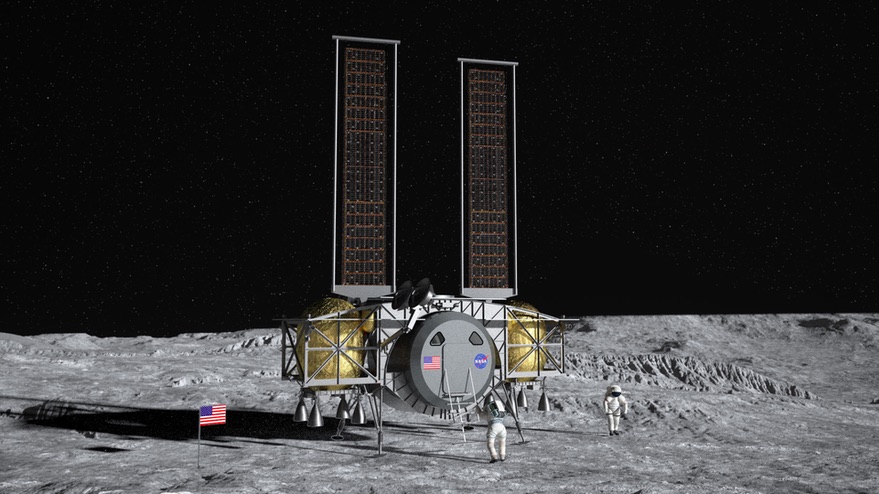Products You May Like
WASHINGTON — Dynetics has joined Blue Origin in filing a protest of NASA’s selection of SpaceX for a single Human Landing System award, a move that could force the agency to suspend work on the program.
In a statement April 27, Dynetics said it filed a protest of the HLS award with the Government Accountability Office the previous day. Blue Origin, the other losing bidder in the competition, filed its own protest of the award with the GAO the same day.
“Dynetics has issues and concerns with several aspects of the acquisition process as well as elements of NASA’s technical evaluation and filed a protest with the GAO to address them,” the company said in a statement to SpaceNews. “We respect this process and look forward [to] a fair and informed resolution of the matter.”
The company did not elaborate on the specific “issues and concerns” it had with the HLS acquisition process, but noted it believed “NASA’s initial plan for continued competition remains the best approach to ensure program success.” The company said it would not comment further on the protest.
NASA selected one company, SpaceX, for an “Option A” award April 16 to fund development of a crewed lunar lander and a demonstration mission, after earlier indicating that it would select one or two companies. The agency said in a source selection statement that budget shortfalls made it impossible for the agency to select two, and had to ask SpaceX, the lowest bidder, to revise its proposed payment schedule to fit into its budget profile.
Of the three bidders, Dynetics was the lowest ranked. It had a technical rating of “Marginal,” one step below the “Acceptable” that Blue Origin and SpaceX received. Its Management rating of “Very Good” was the same as Blue Origin but one step below SpaceX’s “Outstanding.”
In the source selection statement, Kathy Lueders, NASA associate administrator for human exploration and operations, said the Dynetics lander “suffered from a number of serious drawbacks” that increased risk. The lander was overweight, which at this early stage of development “calls into question the feasibility of Dynetics’ mission architecture and its ability to successfully close its mission as proposed,” she wrote. The evaluation also questioned the maturity of the technology for performing in-space cryogenic fluid transfer required to refuel the lander, as the company planned.
Lueders concluded that “while Dynetics’ proposal does have some meritorious technical and management attributes, it is overall of limited merit and is only somewhat in alignment with the objectives as set forth in this solicitation.” The document only stated that Dynetics’ proposal had a price “significantly higher” than Blue Origin’s proposal, which in turn was significantly higher than SpaceX’s winning bid of $2.89 billion. Blue Origin disclosed in its protest that it bid $5.99 billion.
NASA made the HLS award so that it could seamlessly shift from the original “base period” contracts issued nearly one year ago and set to expire April 30 to the Option A award. However, NASA Acting Administrator Steve Jurczyk said it’s uncertain if the two protests will suspend that work.
“We’ve been made aware of the protests by both Blue Origin and Dynetics from GAO,” he said during an April 27 webinar by the Space Transportation Association. “It’s too soon to be determined whether that’s going to delay moving forward or whether we can keep things moving forward. We’re working through that right now.”
In September 2014, Sierra Nevada Corporation filed a protest of NASA’s award of commercial crew development contracts to Boeing and SpaceX. NASA instructed those two companies to stop work on those contracts, but within a couple weeks lifted those stop-work orders, citing “statutory authority available to it” to allow work to continue while the GAO reviewed the protest. GAO dismissed the protest in January 2015.
